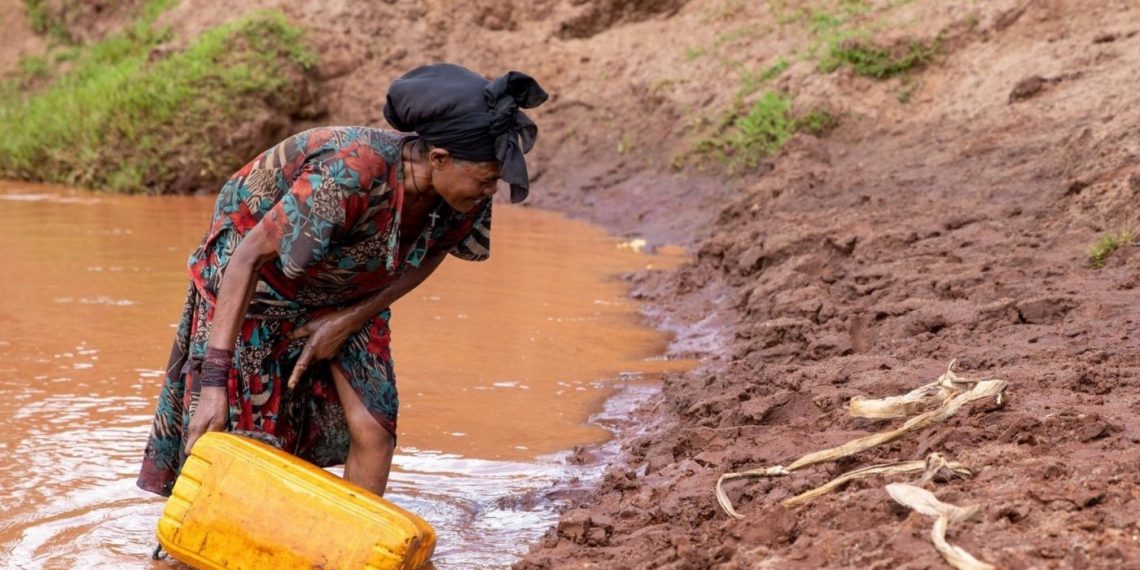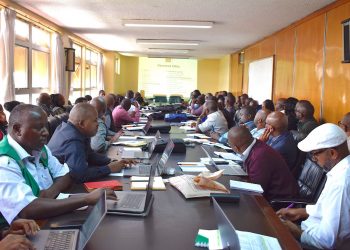LVCT Health is advocating for the integration of Female Genital Schistosomiasis (FGS)- a neglected tropical disease that significantly affects the female population- care into women’s sexual and reproductive health (SRH) services, health prevention and promotion services, and health worker training to address the health inequities in Kenya.
They urge the Ministry of Health to ensure that healthcare providers in schistosomiasis-endemic areas include FGS in their standard diagnosis, treatment, and care protocols.
Moreover, they recommend collaboration with other stakeholders like Ministry of Education to facilitate mass drug administration in schools coupled with health information to increase awareness and inclusivity for marginalized communities affected by FGS, and enhancing water, sanitation and hygiene (WASH) services to protect girls and women from making contact with unsafe water.
Dr. Stephen Mulupi, Head of research implementation at LVCT Health, explains that integrating FGS into HIV, sexually transmitted infections (STI) clinics, sexual and reproductive health (SRH), Human Papilloma Virus (HPV)/cervical cancer screening, and maternal health services can improve prevention, diagnosis and treatment, for women and girls.
“Misdiagnosis and a lack of awareness contribute to ineffective health-seeking behaviors, unnecessary and wasteful antibiotic treatments, and improper clinical investigations,” Mulupi said.
LVCT Health is a Kenyan NGO leading in HIV programming research and advocacy for prevention, counseling and testing, and gender-based violence reaching those most at risk.
He explains that FGS, is a parasitic disease caused by Schistosoma mansoni, a worm that is transmitted by snails that live in freshwater bodies such as lakes, ponds and rivers. People get infected when they make contact with water that contains the infected snails.
However, FGS often goes unnoticed in medical practice but affects approximately 56 million girls and women in poor settings in Sub-Saharan Africa according to World Health Organization data. The schistosomiasis worms infect individuals who come into contact with contaminated water, and their eggs lodge in the pelvic area, causing inflammation, lesions, and severe complications.
Chronic FGS infection can lead to serious reproductive health issues, including infertility and stillbirth, and is associated with an increased risk of HIV transmission and cervical cancer.
Dr. Mulupi notes that schistosomiasis is often linked to poverty, lack of access to clean water, sanitation and hygiene facilities, and affordable healthcare services.
He adds that women and girls are disproportionately affected by FGS due to their gendered household responsibilities such as laundry by the lake or riverside, fetching water that expose them to contaminated water sources.
Mulupi explains that despite of the availability and effectiveness of drug known as praziquantel in treats schistosomiasis and prevents FGS, it is often only distributed through mass drug administration to school-aged children, making it difficult to access in primary healthcare settings.”
LVCT Health, in partnership with the Ministry of Health and Frontline AIDS, is conducting a demonstration study in Homabay, Kilifi, and Kwale counties, where urogenital schistosomiasis prevalence among women is estimated at 15 to 30 percent. The study incorporates a training component among healthcare workers to enhance their capacities to diagnose and treat FGS in a timely way. Schistosomiasis is diagnosed through the detection of parasite eggs in stool or urine specimens, with antibodies and/or antigens in blood or urine samples indicating infection.
Patriciah Jeckonia, Programme Manager for Policy and Partnerships, says that FGS is a risk factor for HIV infection and cervical cancer in women.
With FGS symptoms manifesting itself as pelvic pain, bloody vaginal discharge, painful intercourse, post-coital bleeding, and genital itching and burning, FGS often leads to misdiagnosis as an STI and increases risk of gender-based violence in relationships.
“FGS complications can result in social isolation, mental health issues, stigma, discrimination, and gender-based violence.”
Patriciah emphasizes the need for community awareness to improve FGS prevention, and demand for services. Health education and awareness should be enhanced by translating complex scientific information into local languages for better community understanding.
She added that “Ministry of Health needs to integrate FGS into SRH policies to facilitate allocation of funding to end FGS by 2030. While there is leadership from the Neglected Tropical Diseases (NTD) department at MOH, the lack of data and limited funding affects elimination of FGS. The LVCT Health study has incorporated a costing component, to inform policy decision makers about financial and resource implications of scaling up diagnosis, care and treatment of FGS. “
According to the Kenya Medical Research Institute (KEMRI), schistosomiasis transmission remains a significant public health concern in Kenya, with the parasite endemic in 62 out of 290 sub-counties. Major endemic areas include the Coastal region, parts of Central and Lower Eastern areas, and the Lake Victoria basin, with transmission associated with domestic, agricultural, commercial, and recreational activities involving contaminated water.
Kenya is working to eradicate transmission of Onchoceriasis and eliminate lymphatic Filiarisis,Tracoma and Schistosomiasis, Soil Transmitted Helminths (STH) as public health problems by 2027 according to Ministry of Health.















